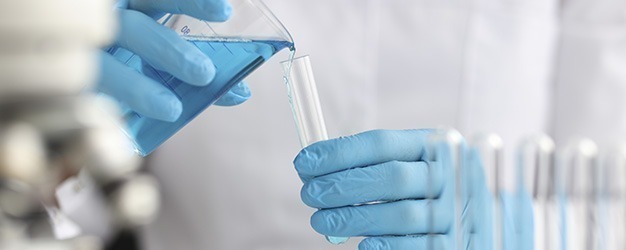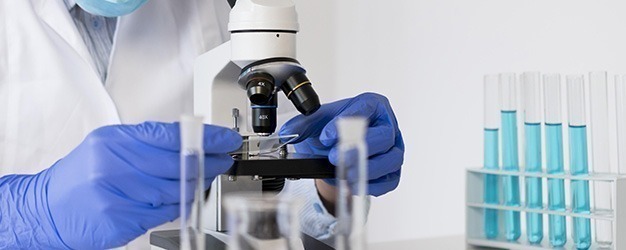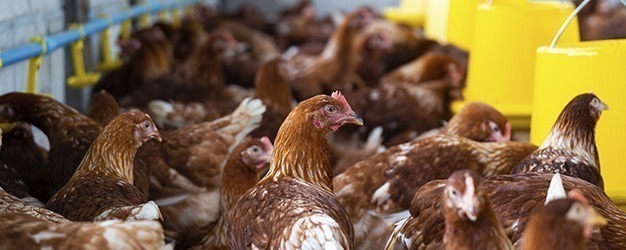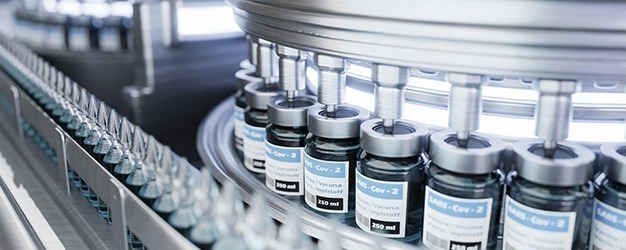Insights > Client Alerts
Client Alerts
Life Sciences Newsletter No.6 – September 2021
8 de outubro de 2021

[vc_row][vc_column][vc_column_text]Our Public and Regulatory Law team presents the sixth edition of the Life Sciences Newsletter, with a compilation of the main news and information of the area occurred in September.
Demarest’s Public and Regulatory Law team continues to monitor developments in the Life Sciences area, and is available to provide any clarification or further information on these and other topics.
Happy reading!
Read the fifth issue here.
[/vc_column_text][vc_empty_space height=”50px”][vc_column_text el_id=”materia1″]
ANVISA – National Health Surveillance Agency
Public Consultation to improve rules on imports for scientific research
On September 22, 2021, Public Consultation No. 1,054/2021 was published in the Federal Official Gazette, with the aim of obtaining contributions to update the RDC (Resolution of the Collegiate Board) 172/2017, which provides for the procedures for the import and export of goods and products intended for scientific or academic research.
The proposal of the Public Consultation is specifically intended to improve the legislation related to the importation of products and medicines regulated by the Brazilian Health Surveillance Agency (ANVISA) and that are used in scientific research involving human beings, without regulatory purposes.
Among the changes suggested in the Public Consultation, we highlight the following: (i) the impossibility of entry into Brazil by postal remittance of products under sanitary surveillance and intended for research involving human beings, such that their import can only be carried out through Siscomex or express remittance; (ii) the proposal to establish, as mandatory, the requirement for digital signature using the e-CNPJ or e-CPF type certificates issued by certification authorities recognized by the Brazilian Public Key Infrastructure (ICP/Brazil); and (iii) the inclusion in the Terms of Liability (Exhibit I of RDC 172/2017) of information on the inventory of imports carried out previously for the same research project.
Contributions, comments, and suggestions can be sent until October 13, 2021. At the end of this period, ANVISA will analyze the contributions and will publish the result of the Public Consultation on the Agency’s website. The form for submitting contributions is available at the link: https://pesquisa.anvisa.gov.br/index.php/784832?lang=pt-BR.[/vc_column_text][vc_empty_space height=”50px”][vc_column_text el_id=”materia2″]
ANVISA – National Health Surveillance Agency
Proposal of a new methodology for evaluation of services for blood, tissue and cells
On September 6, 2021, ANVISA launched the “Blood, Tissue and Cell facilities self-assessment Project” – (STC, in Portuguese) -, focusing on the providers of hemotherapy services, assisted reproduction centers and tissue banks. The project aims to collect data to subsequently improve the monitoring actions of sanitary surveillance and promote improvements in these facilities.
The Management of Blood, Tissue, Cells and Organs (GSTCO) has made available three self-assessment instruments, which may be completed by the groups of services indicated above, within their respective deadlines: (i) Self-assessment instrument for Hemotherapy Services – available from September 6 to November 5, 2021; (ii) Self-assessment instrument for Assisted Human Reproduction Centers – (Germ Cell and Tissue Banks – BCTGs) – available from September 6 to October 8, 2021; and (iii) Self-assessment instrument for Tissue Banks – available from October 4 to November 5, 2021).
While this is a project of voluntary participation by the regulated sector, participation is encouraged as it is a very important project for the sector.[/vc_column_text][vc_empty_space height=”50px”][vc_column_text el_id=”materia3″]
MAPA – Ministry of Agriculture, Livestock and Food Supply
New procedures for registration by establishments involved in products of animal origin
On September 13, 2021, Ordinance No. 393 of the Ministry of Agriculture, Livestock and Food Supply was published, approving new procedures for registration, relationship, reform and expansion, change and cancellation of registration or relationship of establishments with the Department of Inspection of Products of Animal Origin (DIPOA).
Ordinance No. 393, which came into force on October 1, 2021, aims to simplify and standardize the documentary and procedural requirements for registering establishments with the DIPOA, including small agribusiness establishments.
MAPA informed that the simplified registration procedure includes establishments classified as: (i) poultry farms; (ii) refrigeration stations; (iii) cheese factories; (iv) processing units for bee products; (v) warehouses for products of animal origin; and (vi) wholesalers.
For establishments classified as refrigerated abattoirs, meat and meat product processing units, factory ships, refrigerated fish abattoirs, fish and fish product processing units, bivalve mollusc purification stations, egg and egg product processing units, dairy farms, milk and milk product processing units, the granting of registration will depend on prior analysis and the issuing of an establishment inspection report.
With the publication of this Ordinance, MAPA’s Normative Instruction No. 3/2019, which established the procedure and documentation required to obtain registration with the DIPOA, will be repealed.[/vc_column_text][vc_empty_space height=”50px”][vc_column_text el_id=”materia4″]
ANVISA – National Health Surveillance Agency
New Law in Brazil extinguishes the need for prior consent by Anvisa to grant pharmaceutical patents
On August 26, 2021, President Jair Bolsonaro passed Law No. 14,195/2021, repealing, with immediate effect, art. 229-C of the Industrial Property Law (“LPI”).
The repealed article required prior consent of the National Health Surveillance Agency (“Anvisa”) as a condition for the Brazilian Patent and Trademark Office (“BPTO”) to grant patents on pharmaceutical products and processes.
According to the rapporteur of Provisional Measure 1,040/21 (“MP”) in the House of Representatives, Congressman Marco Bertaiolli (PSD-SP), the repealing of the article presents the potential to save up to two years in the process of analyzing and granting new patents: “Anvisa is overloaded with applications for analysis that in most cases will have no commercial interest. They are ideas. We removed this obligation and gave Anvisa room to worry about what has value,” says the rapporteur.
The analysis conducted by Anvisa assesses whether a formula contains or may result in a substance prohibited for use in Brazil, in addition to gauging the safety of the product or pharmaceutical process. With the legislative change, this analysis is no longer necessary for granting a patent, but is still required to obtain authorization to market the drug.
Within this context, the BPTO have been publishing notices communicating that the flow of patent applications between the Office and Anvisa has been terminated as of August 27, 2021, and that patent applications for pharmaceutical products and processes are already being returned by Anvisa for normal processing at the BPTO.[/vc_column_text][vc_empty_space height=”50px”][vc_column_text el_id=”materia5″]
CMED – Chamber of Medicine Market Regulation
New rules on temporary compulsory patent licensing in the event of national emergencies
On September 2, 2021, Bill No. 12/2021 was sanctioned with the purpose of amending the Brazilian Industrial Property Law (“BIPL”) in order to authorize the temporary compulsory licensing of patents and patent applications in the event of a national emergency. According to the proponents of the Bill, its intent is to accelerate the process of granting compulsory licenses during emergencies, including public health emergencies, declared by law or decree, as is the case of the pandemic caused by Covid-19.
It is worth noting, however, that the BIPL already provides a compulsory license mechanism in the event of a national emergency for patents granted which, in fact, is supported by the Federal Constitution and by international treaties on intellectual property. The Brazilian Intellectual Property Association (“ABPI”), in an open letter issued on August 25, 2021, expressly opposed the Bill and emphasized that “it is not necessary to change the law to have compulsory licensing”.
The big difference between the former text and the current one is the possibility of compulsory licensing of patent applications, i.e. applications that are still under examination.
Furthermore, with the changes made to the BIPL, procedural rules and deadlines were determined, establishing a Positive Duty to act on the part of the Executive Branch when declaring an emergency of national interest.
According to the text sanctioned by the President, the government will have the duty to publish, within 30 days of publication of this Law, a list of product patents or product patent applications potentially needed to address the situation. The patent applications that are still within the 18-month secrecy period, as determined by the BIPL, will not be exempted from this situation and will be included in the list, which in itself generates a great deal of discussion.
It is important to highlight that the Bill provides for an exception to compulsory licensing, in cases where the competent authority, established by the Executive Branch, deems that the patent holders of these technologies and products have made objective commitments capable of ensuring that domestic demand will be met in conditions of volume, price, and term compatible with the emergency needs.[/vc_column_text][vc_empty_space height=”50px”][/vc_column][/vc_row]
Áreas Relacionadas














